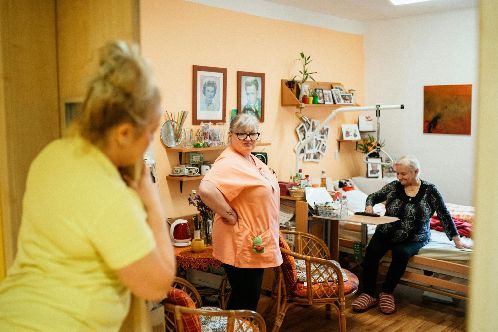The Benefits and Costs of Domiciliary Care study

This £1.6m collaborative research project, led by the University of Kent’s PSSRU, seeks to assess the value for money social care services provide to people receiving care and their families.
It will survey people receiving different types of domiciliary care and unpaid carers. They will work with people with lived experience of care services to ensure survey questions are fit for purpose. The research will explore which aspects of people’s lives social care services affect. Other important factors will include age, gender, ethnicity, source of care funding, geographical location, availability of unpaid care, housing suitability/safety, and provider characteristics. These will give a sound picture of the domiciliary care landscape.
Funded by the NIHR Policy Research Programme, the 3year project brings together a cast of 6 partners, including the Housing LIN - the sole housing representative. Other partners include researchers from King’s College London, social research specialists at Ipsos, analysts at Skills for Care as well as the Homecare Association. In addition, the project is supported by the Care Quality Commission and the NIHR Research Delivery Network.
With the Casey Commission on Adult Social Care recently announced, this project will have even more prominence. The Housing LIN is therefore delighted to provide housing input and both share knowledge and experience of at home care and support the project with dissemination of findings to the housing sector.
Jeremy Porteus, the Housing LIN’s founder and CEO said:
“We are delighted to partner with this research project from a housing perspective. Whether self-funded or planned care received by people in mainstream housing or those living in purpose-built accommodation, such as extra care housing or supported living, we look forward to better understanding the value of the care and support across a range of accommodation settings and the impact it makes on the quality of lives of people who rely on care and support in a home of their choice.”
